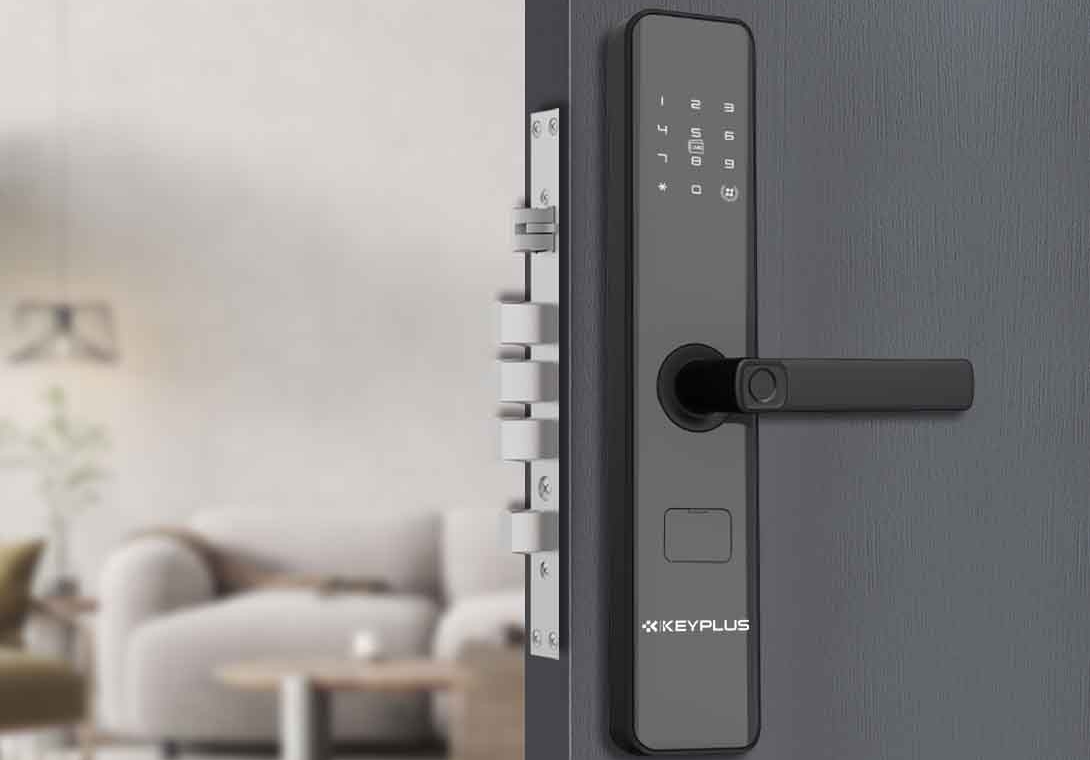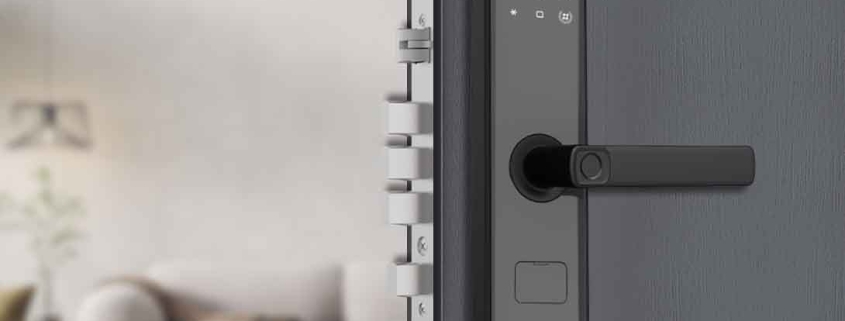What Is a Keyless Smart Lock?
In an era where smartphones control everything from lights to thermostats, traditional keys are starting to feel outdated. Enter keyless smart locks—a secure, convenient, and futuristic way to protect your home.
But what exactly is a keyless smart lock, how does it work, and is it right for you? This guide covers:
Definition & types of keyless smart locks
How they work (technology explained simply)
Pros & cons vs. traditional locks
Keyless Smart Lock Suppliers in 2025
Installation & security FAQs
By the end, you’ll know whether going key-free is the right choice for your home.
1. What Is a Keyless Smart Lock?
A keyless smart lock is a key-free electronic door lock that uses one or more of these entry methods instead of physical keys:
-
Numeric keypads (enter a PIN code)
-
Smartphone apps (Bluetooth/Wi-Fi unlock)
-
Fingerprint scanners (biometric access)
-
Voice control (via Alexa/Google Assistant)
-
Proximity sensors (auto-unlocks when you approach)
-
RFID/NFC cards/fobs (tap to unlock)
Unlike traditional locks:
-
No risk of lost/misplaced keys
-
Allows remote access control
-
Provides entry logs (who entered and when)
2. How Do Keyless Smart Locks Work?
Core Components
-
Electronic locking mechanism – Replaces traditional tumblers with a motorized bolt.
-
Authentication system – Verifies users via codes, fingerprints, or mobile signals.
-
Connectivity module – Enables remote control via Wi-Fi/Bluetooth/Z-Wave.
Step-by-Step Operation
-
User requests entry (enters code, scans fingerprint, or uses app).
-
Lock verifies credentials against stored authorized users.
-
Motor engages and retracts the bolt if approved.
-
Access is logged in the system (optional on most models).
Power Source:
-
Most use standard batteries (AA/CR123A) lasting 6-24 months.
-
Some premium models offer rechargeable batteries or hardwired options.
3. Types of Keyless Smart Locks
| Type | How It Works | Best For | |
|---|---|---|---|
| Keypad Locks | Enter PIN code | Families, rentals | |
| Fingerprint Locks | Biometric scan | High security | |
| App-Controlled | Smartphone unlock | Tech lovers | |
| Voice-Activated | “Alexa, unlock door” | Smart homes | |
| Auto-Unlocking | Detects your phone | Hands-free access | |
| Card/Fob Entry | Tap RFID card | Offices, hotels |
4. Key Benefits of Keyless Smart Locks
Advantages
No more lost keys – Impossible to lock yourself out.
Remote access – Grant entry to guests from anywhere.
Temporary access – Set expiring codes for cleaners/maintenance.
Activity monitoring – See who enters/exits and when.
Integration – Works with Alexa, Google Home, etc.
Potential Drawbacks
Power dependency – Dead batteries can cause issues.
Hacking risks – Poorly secured Wi-Fi locks may be vulnerable.
Higher cost – $100-$300 vs. $20 for traditional locks.

5. Are Keyless Smart Locks Secure?
Security Strengths
-
No physical keys to pick or duplicate
-
Encrypted wireless signals (on quality models)
-
Instant remote lockdown if compromised
Potential Weaknesses
-
Cheap models may have weak encryption
-
Wi-Fi locks are more exposed than Bluetooth
-
Fingerprint scanners can sometimes be fooled
For maximum security:
-
Choose Z-Wave or Bluetooth over Wi-Fi if possible
-
Look for BHMA/ANSI Grade 1 or 2 certification
-
Enable two-factor authentication where available
6. Keyless Smart Lock Suppliers in 2025
KEYPLUS Keyless Smart Lock Suppliers
Keyplus has been deeply engaged in smart locks, electronic door locks, fingerprint locks, IC card locks and other products since 1993, serving homes and hotels, integrating R&D, design, production, sales and services.
with factory direct pricing, fast delivery and OEM customization services.
7. Installation: Can You DIY?
Most keyless smart locks are DIY-friendly:
-
Retrofit models attach to existing hardware
-
Full replacement locks require some tools but include instructions
-
Professional installation costs $50-$150 if needed
Typical Tools Required:
-
Screwdriver
-
Tape measure
-
Drill (sometimes)
8. Frequently Asked Questions
Q: What happens if the battery dies?
A: Most have:
-
Low battery warnings (app alerts/beeping)
-
Emergency power ports (9V battery jump)
-
Physical key override (on some models)
Q: Can hackers break into smart locks?
A: Quality models use encryption making hacking extremely difficult. Bluetooth locks are generally safer than Wi-Fi.
Q: Do all smart locks require a smartphone?
A: No—many work with keypads, fingerprints, or voice alone. Smartphone access is optional on most.
Q: Are they weatherproof?
A: Exterior-rated models are, but interior-only locks shouldn’t be used outside.
9. Should You Get a Keyless Smart Lock?
Ideal For:
-
People who frequently lose keys
-
Homeowners wanting remote access
-
Parents monitoring teen comings/goings
-
Airbnb/rental property owners
Not Ideal For:
-
Those preferring simple mechanical solutions
-
Locations with unreliable power/Wi-Fi
-
Very high-security needs (vaults, etc.)
10. The Future of Keyless Entry
Emerging technologies include:
-
Facial recognition locks
-
Palm vein authentication
-
Self-charging kinetic energy locks
-
Blockchain-based digital keys
Final Verdict
Keyless smart locks offer unmatched convenience and good security for most homes. While not perfect, their benefits far outweigh drawbacks for modern homeowners.
Ready to ditch your keys? Start with our top picks like the Keyplus Smart Lock for a seamless upgrade to keyless living.
What’s your biggest concern about going keyless? Share below!









